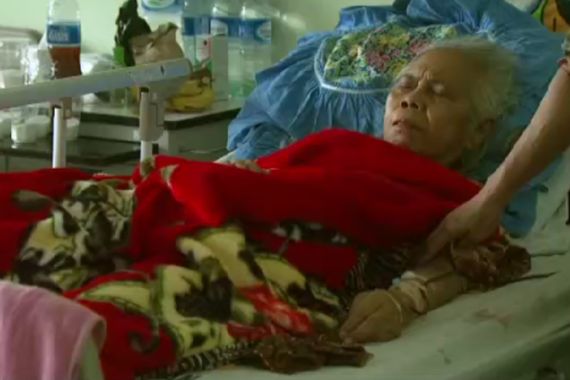Indonesia’s health comes at a cost
As Indonesia’s first universal health-care scheme is launched, hospitals struggle to cope.

The Indonesian government says it is better than Obamacare: the new health-care plan which is one of the largest in the world.
Tens of thousands of Indonesians have signed up since January 1 with many queuing for hours, even days to get health insurance at long last.
More than 120 million Indonesians are automatically covered because they are working for the government, police, army, or are considered poor.
The others will be asked to pay a monthly premium of around $5 per person.
By 2019 all 240 million Indonesians should be guaranteed health-care.
This is good news in a country where it was common practice for hospitals to refuse patients when they could not afford treatment.
Over the years many poor people have died because they were sent home or passed away in hospital after they could not pay for their medication.
Being healthy or sick was always a matter of money.
President Susilo Bambang Yudhoyono, who has proudly presented the new health-care scheme, has promised that these practices are a thing of the past.
Lack of funding
Just one week after the scheme was launched I find Muhammad Toni sitting cramped in a wheelchair, clearly in pain.
The 66-year-old is suffering from liquid in his lungs and was admitted to hospital, but then released again due to a shortage of beds.
“Since he got home he his condition got worse,” his daughter Sri Herni says. “We are really disappointed that he was sent home.”
The hospital says it is not aware of his case.
Shortages of doctors and hospital beds are one of the main concerns surrounding the new scheme.
People are flocking to hospitals now they can finally get their treatment covered.
Doctors warn that, due to a lack of information, medical care in Indonesia could be heading towards a chaotic phase.
Hospitals and doctors do not trust that their expenses will be covered and therefore will limit care.
“I am really worried,” says surgeon Wawan Mulyawan.
“I see already that the quality of medical care is suffering and patients are the main victim.”
The problem, according to doctors, is the low premium the government is paying per patient, nearly $2 per month.
Not enough, they say, to cover the costs and that it should be more than $5 per patient per month.
President Yudhoyono has already announced that the government is willing to revise the policy.